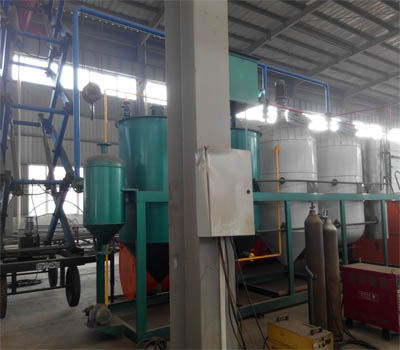What is dewaxing in edible oil refining?
Dewaxing in edible oil refining refers to the process of removing waxy components from original vegetable oil. Wax is one of the impurities in vegetable oil, and its existence will affect the quality and stability of oil products. Therefore, dewaxing is a very important step in the refining process of edible oil.

The methods of dewaxing mainly include physical methods and chemical methods.
The physical method is to separate the wax from the oil by freezing crystallization, filtration or centrifugation. In the freezing crystallization method, the wax is crystallized and settled by lowering the oil temperature to a certain extent, and then the wax is separated from the oil by filtration or centrifugation. This method is simple to operate and will not produce chemical changes to oil products, but it consumes a lot of energy and has low efficiency.
The chemical method is to extract wax from oil by solvent. Commonly used solvents include n-hexane, acetone and ethanol. By mixing the solvent with vegetable oil, then stirring and separating at a proper temperature, the wax is finally extracted from the oil. This method can effectively remove wax, but attention should be paid to the recovery and treatment of solvents to avoid environmental pollution.
Both physical and chemical methods need to be carried out under strict technological conditions to ensure dewaxing effect and quality stability of oil products. At the same time, it is necessary to consider the influence on other components in the oil during dewaxing to ensure that the refined edible oil meets the health and safety standards and food safety requirements.
In a word, dewaxing is an indispensable part in the process of edible oil refining, which can effectively improve the quality and stability of oil products and ensure the safety and health of edible oil. With the progress of science and technology and the improvement of technology, it is believed that more and more efficient dewaxing methods will be applied to the production of edible oil in the future.
